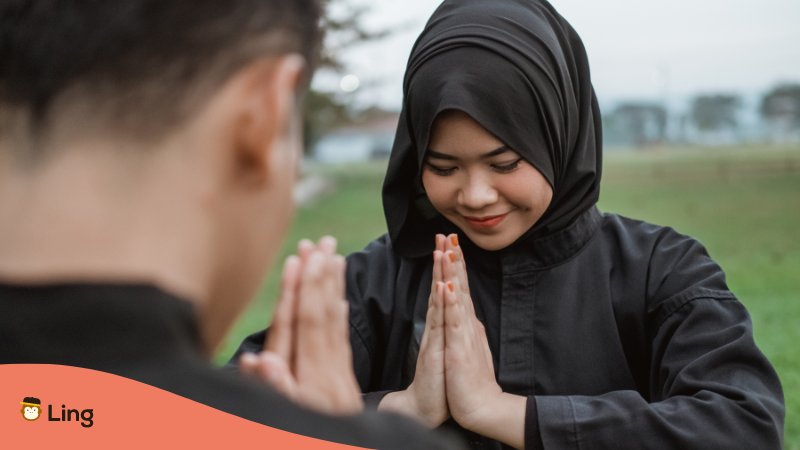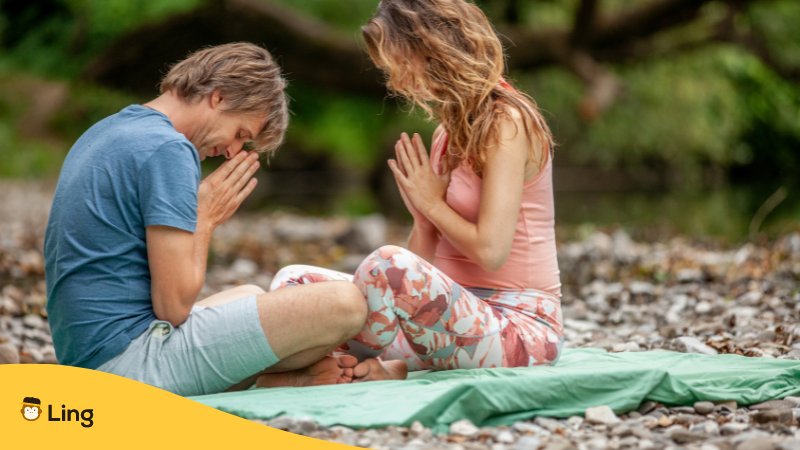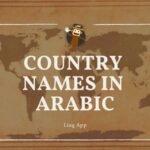Want to learn more about the Cambodian people? Well, one thing they highly value is politeness. They have a particular code of Cambodian courtesy, which can seem unique and out of the box for native English speakers. If you want to know Cambodians honestly and have an authentic trip this season with the locals, you will have to learn more than just basic Khmer phrases and get acquainted with polite Khmer phrases like អត់ទោស (attos).
So, in today’s post, we will walk through the cultural facts and basic polite vocabulary in the official language to help you with a comfortable trip. Learning these are very consequential because Cambodians value politeness and civility in a holy manner. They have different codes according to hierarchy and rules that distinguish them from Western culture. Thus, this blog is here to guide you with a few phrases to avoid inconvenience and avoid offending anybody. If you want to learn more, continue reading!
The Cambodian Courtesy
Before heading to the section with Khmer language vocabulary, here we will quickly review some of the forms of Cambodian behavior that are considered polite and in conformity with the cultural norms. The below rules can seem weird and rude to Westerners; however, ignoring these can turn the scenario upside down once you land in Cambodia.
The most common way of showing respect and politeness is avoiding eye contact. Pretty weird, right? While eye contact is considered a mark of confidence and bonding in western countries, in Cambodia, people only make eye contact with their social equals. That means they respect the hierarchy. If you are from a different or higher social standing, they will not make eye contact as a sign of respect.
Another significant code of conduct is the Sampeah. If you have read cultural posts before, you will know Sampeah in Cambodia is similar to what we call “Nop” in Lao or “Wai” in Thai. It is a kind body gesture where you are somewhere between a full bow and prayer. It is mainly used by women when they greet a person of the opposite sex.
It is considered rude to touch a person of the opposite sex in Cambodian culture; thus, Sampeah is the polite response used instead of a handshake or a hug like in western culture. It is essential to return the Sampeah properly. Failing to do so can be termed rude, the same as not shaking someone’s hand that has been extended to you.
Respect for elders is also an essential rule in the highly respectful culture of Cambodia. Locals display massive regard for their elders through different formal greeting words, lower bows, sitting in a lower position, and more. The main rule is to respect the elder in any case. The younger person always performs Sampeah first when meeting someone elder; the lower the bow, the more respect is shown. A younger person cannot sit in an elevated seat than the elder, always in the same or lower position. A younger person can never touch or pat an older person’s head, and even putting one’s hand on the shoulders is unacceptable. Also, during mealtime, the elders always eat first.
Essential Khmer Polite Phrases

In this section, we will go through all the must-know polite phrases in the official language. And now that you know Cambodian cultural rules, the following terms will make you completely ready to adapt to the Khmer culture and avoid any mishaps during travel. If you were already pursuing the Khmer language, the Cambodian phrases below would be a good revision for a fluent journey. So, let’s begin!
1. Hello
Translation: ជំរាបសួរ (Hello formal)/ សួស្តី (Hello informal)
The first word that you need to learn in Khmer is the word ជំរាបសួរ- Chom Reap Sour. Whenever you meet someone in Cambodia, you always need to greet them with a little bow, as mentioned earlier, and a smile. Chom Reap Sour/ chom reap sore, is the formal greeting you can use with the country’s older adults.
In case you want to greet your friends more casually, you can use the term សួស្តី- suostei. Always remember that elders and people with higher social standing should use the formal greeting phrase.
2. How Are You?
Translation: អ្នកសុខសប្បាយទេ?
After you say “Hello” to a person, the next polite thing to do is show some concern and ask អ្នកសុខសប្បាយទេ?- anak sokhasabbay te? Cambodians are highly compliant and consider establishing concern for others as a sign of courtesy. So, whenever you get a chance to greet someone, don’t forget to ask anak sokhasabbay te?
If you are reciprocated with the same question, you can politely reply with the phrase ខ្ញុំសុខសប្បាយទេ អរគុណ!- khnhom sokhasabbay te arkoun! It says, “I’m fine, thank you.”
3. Thank You
Translation: សូមអរគុណ
As you saw in the last phrase, it is essential to use the word សូមអរគុណ- saum arkoun. Like the western norms, it is considered polite to say saum arkoun when a favor is done for you, someone compliments you, or gifts you something. Also, it is essential to remember that whenever an elder gifts you a thing, you must receive it with both hands.
4. I’m Sorry
Translation: ខ្ញុំសុំទោស
If you speak English, you know that “sorry” is one of the essential words in the western dictionary. It is no different in Cambodia. In case of any mistakes, faults, or unintentional behavior, the most polite way of avoiding an unwanted scenario is by saying ខ្ញុំសុំទោស- khnhom somtos/ som-toe. It can be used in every setting and with persons of any social status. However, make sure to use it carefully and avoid overusing it. Even while using the word khnhom somtos, you can bow to show some respect.
5. Excuse Me
Translation: អត់ទោស
Similar to the previous vocabulary, អត់ទោស- attos/ som dtoh is another essential phrase to remember. Whether it concerns grabbing someone’s attention, calling the staff in a restaurant, calling a taxi, or when you need to leave during your meal time, using the phrase som dtoh is essential. It is a polite phrase that will help you scroll around the country without worries.
6. Please
Translation: សូម
When it concerns asking someone for help or requesting someone to provide you with your amenities, the vocabulary សូម- saum/ som is perpetual in every culture. Although Cambodians tend to use the phrase relatively less and do not consider it rude when someone avoids it, as a new member of the country, it is best to play it safe. Especially when it concerns older adults of the society, you cannot take a chance of not using the word saum when asking for help!
7. Good Bye
Translation: ឆោម រាសី
Once you are done meeting someone or conversing with them, it is always polite to wave goodbye to end the gathering. The formal way of saying goodbye to someone is ឆោម រាសី- chom reap lear. And to do so with adult members, the traditional way of goodbye- chom reap lear works best. However, you can use the informal version, which is pronounced as លាហើយ- lee hi, while bidding goodbye to your friends or people of your equal status.
8. Yes/No
Translation: បាទ/ ទេ
Another essential word you must learn is to say “yes” or “no.” If someone asks you a question or is looking forward to your opinion, you cannot just stand there with a blank face. So, in order to converse and get along with the locals, it is crucial to know how to say ទេ- bah/ baht (Male yes), ចា- Jah/ cha (Female yes) and ទេ- ot teh (No). Use bah or jah if you agree with something while also nodding your head and ot tei if you think something disagrees with your opinion.
9. Pardon Me
Transaltion: អត់ទោសឱ្យខ្ញុំ
While learning languages will help you overcome language barriers, it will take time to correctly grasp the proper accent and tone. Thus, you might miss someone’s words and need help understanding. In such cases, you can polity ask them to repeat themselves by saying អត់ទោសឱ្យខ្ញុំ- attosa aoy khnhom. Especially if you are not from South East Asia, this phrase will undoubtedly stick around with you for a while.
10. Nice To Meet You
Translation: រីករាយដែលបានជួបអ្នក
No matter which status you belong to or whether you are talking to a stranger or a friend, it is always courteous to appreciate their existence. And to do so, you can say រីករាយដែលបានជួបអ្នក- rikreay del ban chuob anak before calling off a meeting or a casual date. It is one of the primary phrases you must remember to leave a unique impression of your personality in front of the locals. Cambodians love to hear foreigners speak their native language and practice their local culture.
Other Phrases In The Khmer Language

Here is a list of some more Khmer phrases that will help you act politely in Cambodia. Also, the more you read, the better you develop your language skills.
| English | Khmer | Pronunciation |
| No thanks | អត់អីទេអរគុណហើយ | atei te arkoun haey |
| My name is… | ឈ្មោះរបស់ខ្ញុំគឺ… | chhmoh robsakhnhom ku… |
| What is your name? | តើអ្នកមានឈ្មោះអ្វី? | tae anak mean chhmoh avei? |
| Have a good night | សូមឱ្យសុបិន្តល្អ | saum aoy so be nt l |
| Good morning to you | អរុណសួស្តីដល់អ្នក | aroun suostei dl anak |
| The bill, please | សោម កេត ឡូយ | Som ket loy |
| Water, please | សុឹម តាច | Sohm tach/ Som tack |
| How much? | ប៉ុន្មាន? | Bo man |
| See you later | ជួបគ្នាពេលក្រោយ | chuob knea pel kraoy |
| Have a good journey | សូមអោយដំណើរដ៏ល្អ | saum aoy damnaer da l |
| Sorry for the bother | សូមអភ័យទោសចំពោះការរំខាន | saumoaphytosa champoh kar romkhan |
| The food is delicious | ម្ហូបគឺឆ្ងាញ់ | mhoub ku ch nang |
| Just a moment | មួយភ្លែត | muoyophlet |
| Why? | ហេតុអ្វី? | hetoavei? |
| Help me, please | សូមមេត្តាជួយខ្ញុំផង | saum mettea chuoy khnhom phang |
| May I help you? | ខ្ញុំអាចជួយអ្នកបានទេ? | khnhom ach chuoy anak ban te? |
| It was a pleasure to meet you | វាពិតជារីករាយដែលបានជួបអ្នក។ | vea pitchea rikreay del ban chuob anak . |
| Get well soon! | ឆាប់ជាណា! | chab chea na! |
| Sleep well | គេងលក់ស្រួល | kengolk sruol |
Wrapping Up!
Doesn’t it feel good to speak a new language like you are one among the natives? Learning languages does not only ensure you a safe trip, but it simultaneously develops your skills and personality. Once you get comfortable with the few phrases above, you can adapt quickly to Cambodian culture and have a good time with the locals.
Nevertheless, if you want to explore the Khmer script more and get familiar with their everyday routine, the Ling app is here to guide you. It is one of the most excellent language-learning apps you can easily find on the AppStore or Playstore. So, download it now!
Khmer Language With Ling

If you think learning polite words have already made you a good Khmer speaker, you are not wrong! However, you are not the best yet. To become one like the locals, you must go through various topics like sports, food, hobbies, weather, etc. And you can access all of these through the Ling app.
One of the best things about the app is the chatbot system which proffers interactive lessons. Learning with it will make retention easy and enhance your communication skills. Unlike reading books, you can converse with the bot, making learning fun. Also, Ling covers 60+ languages. So, if you wish to learn Khmer and other languages, download Ling now and start learning!



















